A4386
Adenosine 5′-diphosphate bis(cyclohexylammonium) salt
≥95% (HPLC), crystalline, bacterial
Synonyme(s) :
A2P5P, ADP
About This Item
Produits recommandés
Source biologique
bacterial
Niveau de qualité
Essai
≥95% (HPLC)
Forme
crystalline
Solubilité
H2O: soluble, clear to slightly hazy, colorless to faintly yellow
Température de stockage
−20°C
Chaîne SMILES
NC1CCCCC1.NC2CCCCC2.Nc3ncnc4n(cnc34)[C@@H]5O[C@H](COP(O)(=O)OP(O)(O)=O)[C@@H](O)[C@H]5O
InChI
1S/C10H15N5O10P2.2C6H13N/c11-8-5-9(13-2-12-8)15(3-14-5)10-7(17)6(16)4(24-10)1-23-27(21,22)25-26(18,19)20;2*7-6-4-2-1-3-5-6/h2-4,6-7,10,16-17H,1H2,(H,21,22)(H2,11,12,13)(H2,18,19,20);2*6H,1-5,7H2/t4-,6-,7-,10-;;/m1../s1
Clé InChI
SCOUEIPNDLFPCX-IDIVVRGQSA-N
Vous recherchez des produits similaires ? Visite Guide de comparaison des produits
Application
Attention
Code de la classe de stockage
11 - Combustible Solids
Classe de danger pour l'eau (WGK)
WGK 3
Point d'éclair (°F)
Not applicable
Point d'éclair (°C)
Not applicable
Équipement de protection individuelle
Eyeshields, Gloves, type N95 (US)
Faites votre choix parmi les versions les plus récentes :
Certificats d'analyse (COA)
Vous ne trouvez pas la bonne version ?
Si vous avez besoin d'une version particulière, vous pouvez rechercher un certificat spécifique par le numéro de lot.
Déjà en possession de ce produit ?
Retrouvez la documentation relative aux produits que vous avez récemment achetés dans la Bibliothèque de documents.
Les clients ont également consulté
Notre équipe de scientifiques dispose d'une expérience dans tous les secteurs de la recherche, notamment en sciences de la vie, science des matériaux, synthèse chimique, chromatographie, analyse et dans de nombreux autres domaines..
Contacter notre Service technique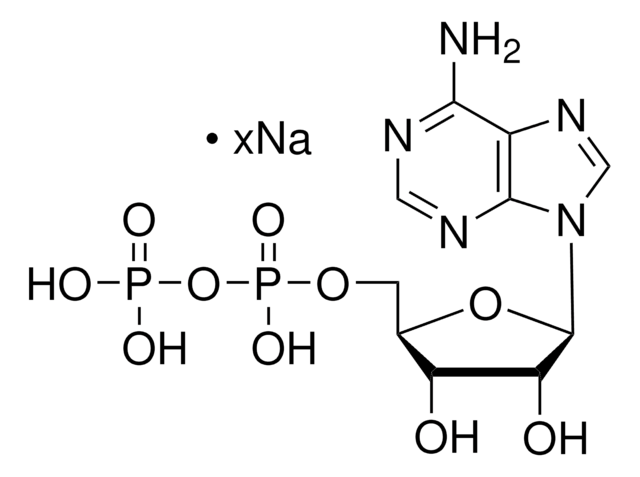

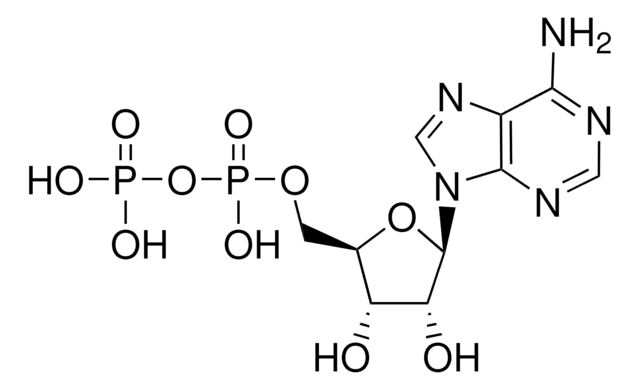
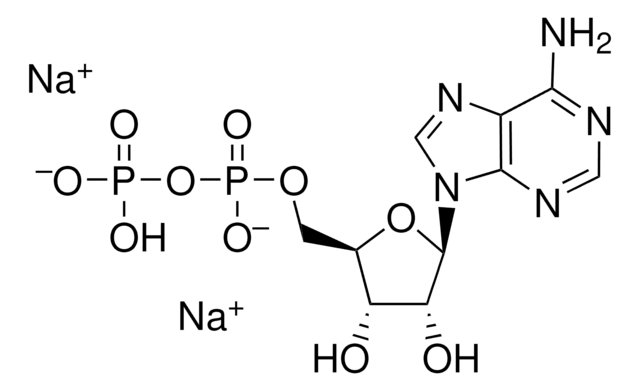
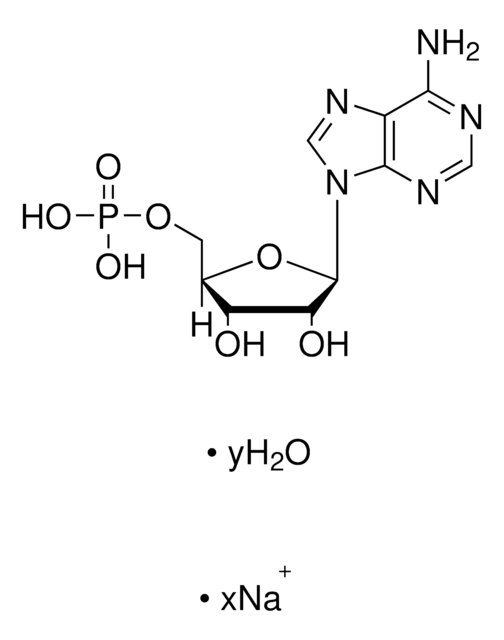

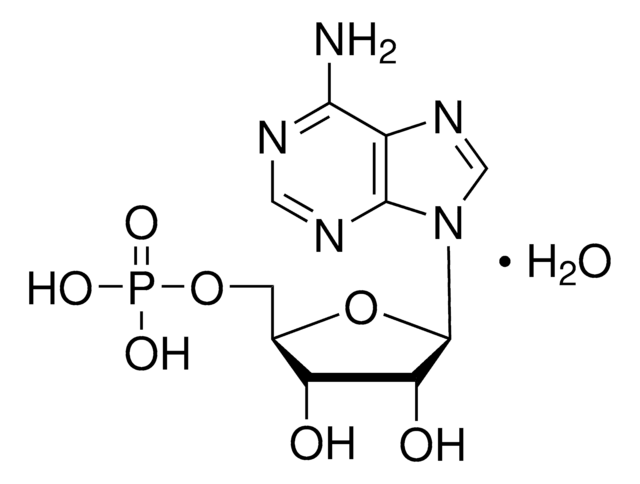
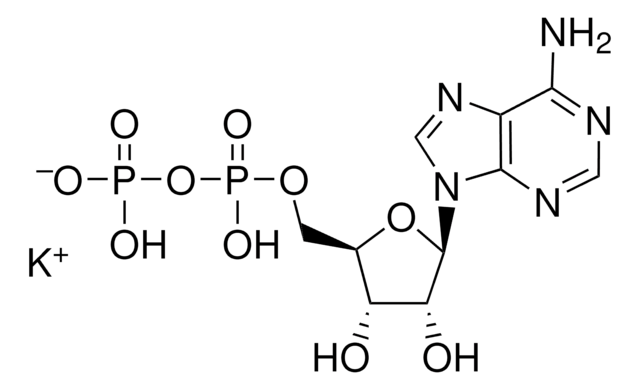
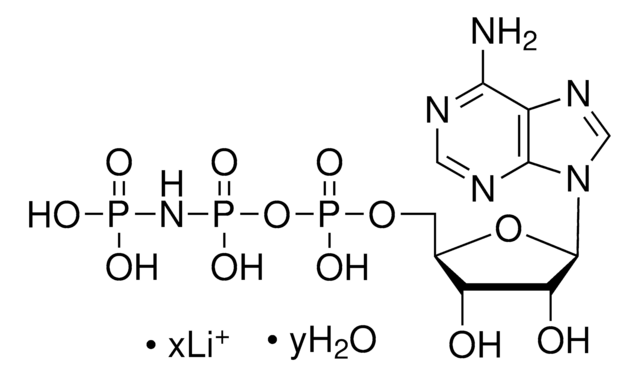
![Adenosine 5′-[γ-thio]triphosphate tetralithium salt ≥75% (HPLC), powder](/deepweb/assets/sigmaaldrich/product/structures/319/398/e29221c2-3649-455b-bd33-583bb017ec7d/640/e29221c2-3649-455b-bd33-583bb017ec7d.png)